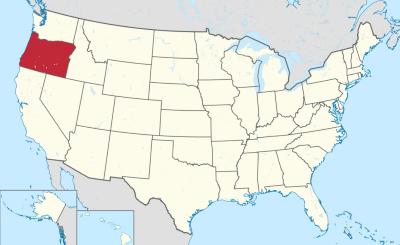Here you’ll find the largest list with Oregon hosting reviews. We’ve listed all Oregon web hosting providers with our UNCENSORED review and that of users.

Quick Facts
Internet Speed: 32.6 Mbps downlink; 7 Mbps uplink
Population: 4 million
Internet Coverage: 85% of residents
Main Internet Services: Cable, DSL, Fiber
Main Internet Service Providers: Comcast, CenturyLink, Frontier
Colocation Datacenters: 27
Internet in Oregon
According to Akamai.com, the average downlink Internet speed in Oregon is 32.6 Mbps and the average uplink speed is 7 Mbps.
In 2016, the population of Oregon was approximately 4 million. More than 85% of residents have access to the Internet, especially broadband connections.
Main Internet services provided in Oregon are as follows:
– Cable – over 90% coverage
– DSL – over 85% coverage
– Fiber – less than 25% coverage
Main Internet Service Providers located in Oregon are the following:
– Comcast (Cable) – over 85% availability
– CenturyLink (DSL) – over 80% availability
– Frontier (Fiber) – less than 20% availability
Gigabit Internet in Oregon
Gigabit Internet is scarcely available in Oregon. In May 2017, Comcast announced that they would start rolling out gigabit Internet services across select areas in Oregon, as well as in Washington. This initiative came as a direct response to Google announcing the launch of a similar service, which was quickly abandoned due to “high costs of running fiber throughout neighborhoods”. Other regional providers offer similar services, but the actual bandwidth is capped to 1TB per month.
Colocation Datacenters in Oregon
According to datacentermap.com, there are currently 27 colocation datacenters located in Oregon. Most datacenters are located in Portland (20), while the rest are distributed across other smaller cities, such as Bend, Baker City, and Bandon.
Major colocation providers located in Oregon are as follows:
– ViaWest, Inc.
– Digital Realty
– DirectSpice Networks, Inc.
– vXchnge
– Level 3 Communications
Prominent Colocation Providers
ViaWest is currently the largest colocation provider established in Portland, and Oregon in general. Their main facility is the Brookwood datacenter, located just outside the Portland metro area. The location features 138,000 square feet of raised floor space, and provides wholesale and retail colocation services to a wide array of local, national and international customers looking to establish a strong presence in the Northwest. Amenities include: redundant UPS power and cooling equipment, primary and backup diesel generators, 1600 AMP service divided into five separate conduits to the floor, as well as diverse fiber entry points into the facility. Additionally, the datacenter features carrier neutrality, with on-site access to over 5 telecommunications providers and other local colocation companies.
Colocation Industry in Oregon
Oregon is not regarded as a vibrant and lucrative colocation market, but the state is no stranger to massive investments made by some of the biggest national colocation providers, including but not limited to ViaWest and Digital Realty.
Advantages for Colocation
Oregon’s numerous advantages for datacenters include:
– constant economic growth
– ever-growing technology sector
– aggressive tax incentives
– datacenter-friendly legislation
– low risk of natural disasters
Disadvantages for Colocation
However, many experts assert that Oregon will not make the transition from a secondary market to a primary market very soon due to many inherent disadvantages, which are:
– unfavorable position within the U.S. – Oregon is not surrounded by many top markets, and therefore is not sought after by customers looking for alternatives to expensive markets
– rather underdeveloped technical infrastructure
– low costs for electricity (approx. $0.075/kWh – 44th in the United States)

